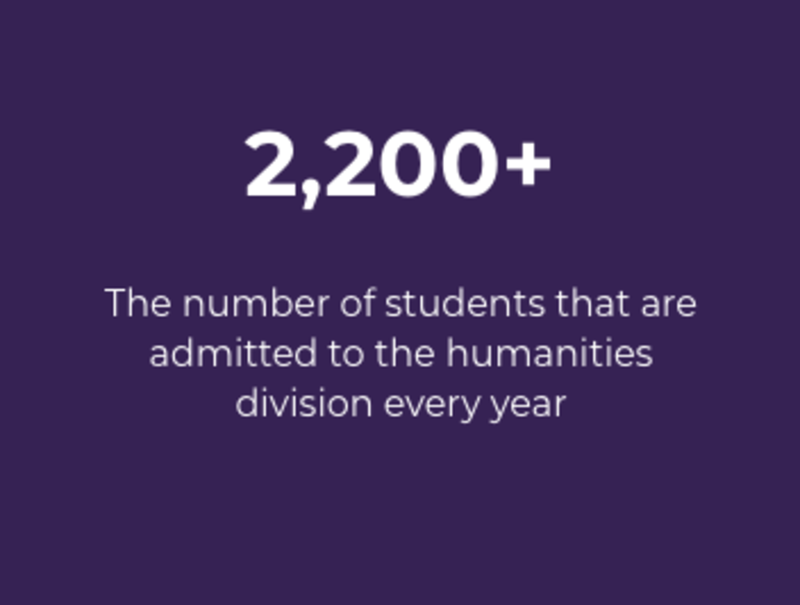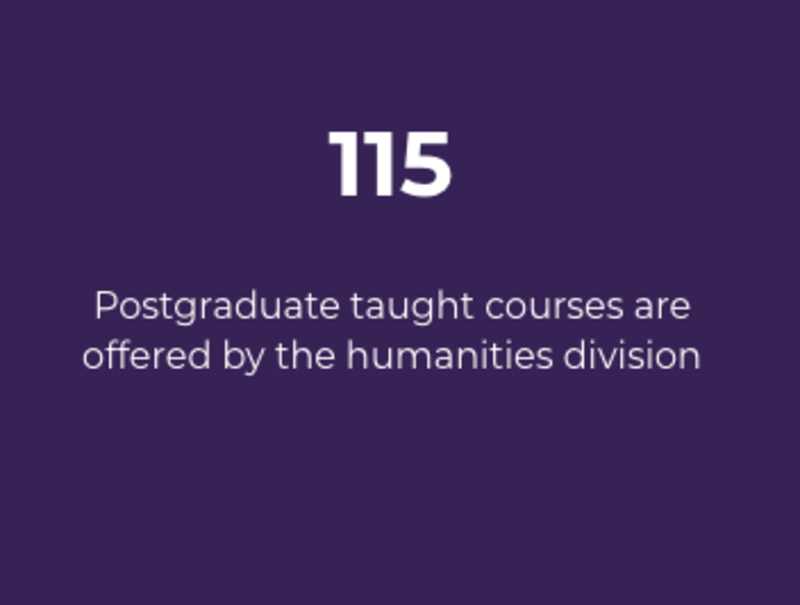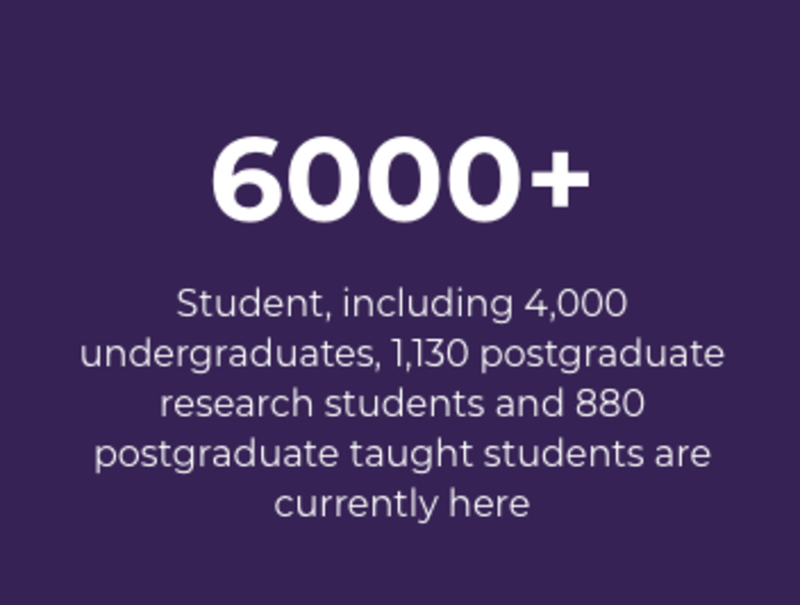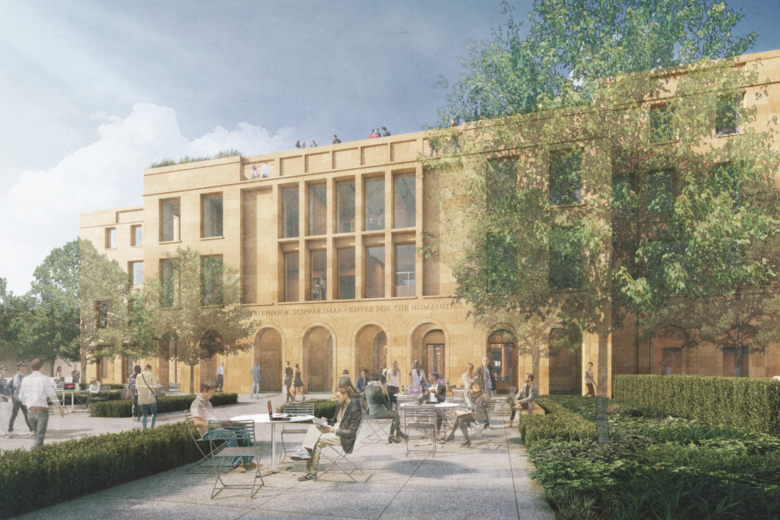Home
DISCOVERING WHAT IT IS TO BE HUMAN IN A COMPLEX WORLD
DISCOVERING WHAT IT IS TO BE HUMAN IN A COMPLEX WORLD
LATEST NEWS ACROSS THE HUMANITIES DIVISION
Artificial Intelligence, climate and ecological breakdown, future pandemics, global conflict, political systems under pressure. These are just some of the significant challenges that humanity faces today. But these challenges also present us with great opportunities to make a positive difference, through our teaching and research.
The Humanities effect positive change in the world by analysing complex problems, informing debate, exchanging ideas and influencing for good. They enable us to expand our horizons and allow for other perspectives to be heard in an empathetic way. The Humanities also have the power to help us understand such challenges in their broader context through historical, cultural, political and linguistic lenses.
IN NUMBERS



How will AI shape the future? Can we navigate the coming revolutions? What, ultimately, does it mean to be human and to live in this fast-changing world? The Humanities have the power to help us with these questions.
They allow us to steer the best course into the future - from informing policy-making and helping to bridge the divide between opinions and beliefs, to articulating complex problems and guiding medical and technological innovation in an ethical manner, to proposing how we can co-exist with intelligent machines.
We are looking for that next generation of linguists, musicians, classicists, historians, philosophers, artists, theologists, writers and entrepreneurs to play their part in shaping the future and to join the long list of Humanities alumni who have made their mark on the world – from Adam Smith, Oscar Wilde and J.R.R. Tolkien, to Vera Brittain, Indira Gandhi, Martha Lane-Fox and Hugh Grant.
With our cutting-edge, cross disciplinary courses, our wide range of artist- and researcher-led projects, the innovative start-ups created by our graduates, our ground-breaking work on the ethics of AI, and the opening of the new Schwarzman Centre for the Humanities in 2025, we now have a once in a lifetime opportunity to tackle some of the biggest challenges ever faced.









